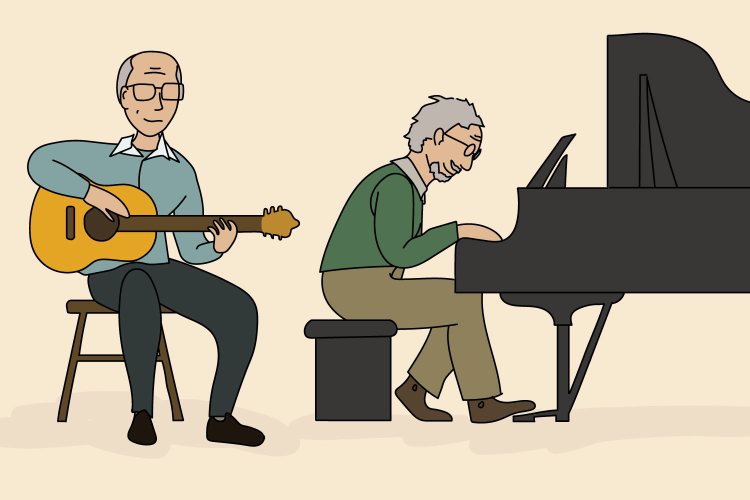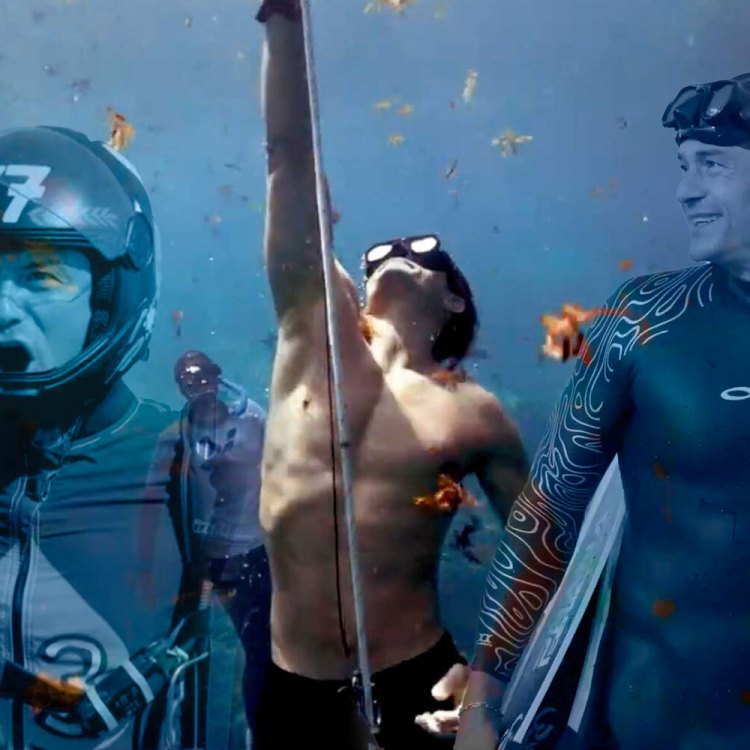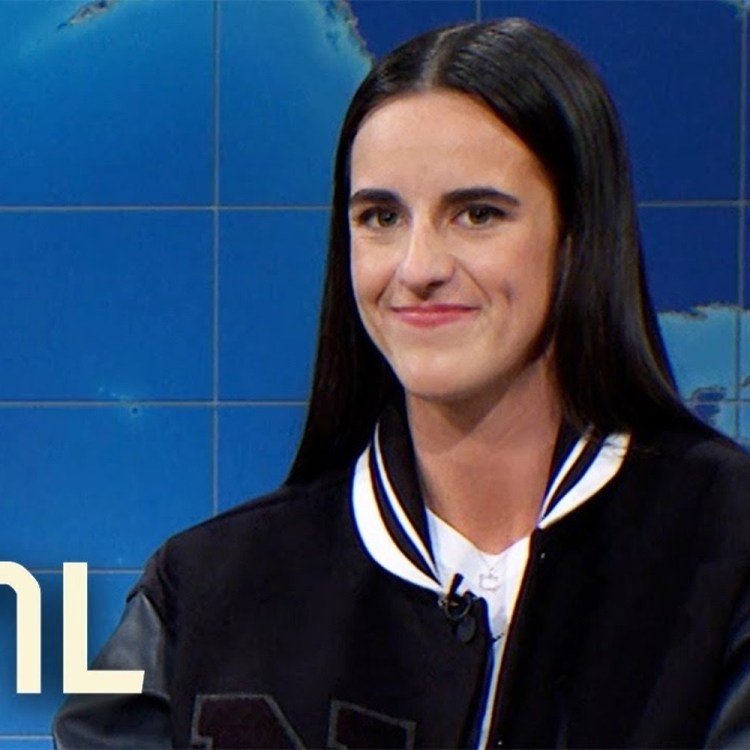Update: In what can only be explained as a reaction to this article, it was announced today that Jordan Peele (“Get Out”) will be rebooting The Twilight Zone for CBS All Access. How that will affect this hot take below is anyone’s guess.
The fourth season of Charlie Brooker’s techno-dystopian satire anthology, Black Mirror, will be arriving on Netflix early next year. Think of it as a belated Christmas present of existential horrors caused by our inevitable march toward the singularity….thanks, Santa! (Or, if Brooker had his way, SantaBot.)
Having originated on Channel 4 in 2012, Black Mirror—named for the reflection you see when staring into a blank screen— spent two seasons in (relative) obscurity here in the U.S., though soon trickled into the cult consciousness, despite having only three episodes a season. Maybe it was the shock of that pilot episode, “National Anthem” which didn’t involve any form of futuristic technology but did involve the prime minister being forced to copulate on camera while the world watched. (I remember torrenting the episode during work, thinking I was sneaky as I watched with headphones on…until I blew up my own spot by loudly yelling in a completely silent office “Oh my god, is that man going to f-ck a pig???)
By 2014, Brooker made a Black Mirror Christmas special starring Jon Hamm and Netflix eagerly scooped up the series, releasing six original episodes last year with a wider array of American stars, directors and writers. This fourth season continues the trend, with Jodie Foster directing this season’s Archangel— an all-too-real vision of a mother-daughter dynamic imploding because of spyware— and David Slade’s black and white, mostly wordless predator/prey episode Metalhead.
When explaining the episodic anthology of Black Mirror to friends, it’s always been easiest to say something along the lines of “It’s like The Twilight Zone but about technology.” Or, as Rob Sheffield put it in his Rolling Stone review of the show last year: “It’s like The Twilight Zone updated for a world where we let alien gadgets live our lives for us, because all they want is a chance #to #serve #man.”
Or The New Yorker’s Emily Nussbaum, who called the show “an update on The Twilight Zone for the digital age” while adding that “Brooker has a lot in common with (Rod) Serling: he’s an absurdist, with a taste for morality plays and horror shows. He knows how to land a punch.”
Even Redditors agree with the common consensus here, which is that creating a show in which each episode is a stand-alone commentary on the human condition using sci-fi and horror tropes is analogous to a hologram of Rod Serling telling you the monsters are due on Maple Street. (Though in Black Mirror, the monsters are running 15 minutes late because their Waze app malfunctioned.)
But underneath these surface comparisons in terms of tone, structure—that third act twist is always a doozy!— and a nagging sense of being lectured, Black Mirror and The Twilight Zone could not be farther apart.
The Twilight Zone was always a morality tale: a caution that we shouldn’t be ruled by mob mentality, or greed, vanity, hatred of the “other” (whether that otherness comes in the form of ghosts, sentient robots, aliens or your own neighbor.) Despite its sci-fi premise, The Twilight Zone made use of the idea of God…or at least the afterlife, where everyone would be judged accordingly. Even when entering through an alternate dimension of time and space, by the end of most of these journeys, you knew what was Right and what was Wrong. A society where people think you are so ugly you have to live in a busted-face shtetl? Wrong. A society that allows you to take a moment to bask in the sunshine and remember what it felt like to be a child on a hot day licking ice-cream that only cost a nickel? Right.
Black Mirror, on the other hand, is interested in social morality only insofar as it can be mined for its destruction. Charlie Brooker’s show is actually amoral since the line between being a hero or a baddie is as muddled and complicated as it is in real life. It’s also incredibly individualistic for a show about technology’s effect on culture. Sure, that mob mentality has squirmed its way into Black Mirror through its use of social media dissemination, it appears in episodes to create a sense of crushing social debt that we need to pay off with our souls. 15 Million Merits, The Waldo Moment, White Bear, Hated in the Nation, National Anthem, along with this season’s Crocodile and Black Museum play into the idea of a cold and callous society more than happy to throw its citizens into the digital colosseum to fight for their entertainment.
But while those are aspects of the show, Black Mirror never spends too long telling us why this is wrong. It doesn’t have to: who among us hasn’t woken up in the last year to scroll through Twitter and Facebook for the sheer schadenfreude of it? Black Mirror never preaches that this needs to be changed for the common good since there’s no point: these impulses have been hard-wired (so to speak) into the human condition long before revenge porn became a thing. We, not the machines, are speeding up the end of the world as we know it. And maybe, for all Charlie Brooker and his writers care, that’s just fine.
Since no one falls into neat little allegorical boxes of amalgamated personality traits, neither do the characters in Black Mirror. Ironic then, that a show ostensibly about how the future of gadgets and gizmos affect society would end up, nine times out of ten, as deeply moving character studies. These stories are disturbing not because the technology that may exist in the not-too-distant-future, but because we recognize ourselves in the players on the stage (or screen). In some ways, the future portrayed in Black Mirror does have the occasional upside: most couples in the future will be interracial, naturally.
The largest, and most important distinction between The Twilight Zone and Black Mirror, however, is the universe in which they inhabit. Black Mirror has been revealed to take place in a singular world at different spots in time, while The Twilight Zone‘s universes were wholly detached from one another. The world in which “The Beholder” takes place is not the same as that in which “To Serve Man” does. These are unrelated, though sometimes recycled, stories about singular phenomena.
Not so with Black Mirror, which has upped the ante this season in proving that everything we’ve seen is connected: Irma Thomas song “Anyone Who Knows What Love Is” is a reoccurring audio clue, and even the technology itself is becoming familiar to viewers. This includes “the grain,” an implant which allows you to record everything you see and “the cookie,” a terrifying concept first introduced in the Christmas episode, which creates a digital copy of a person’s consciousness, to be used for all sorts of nefarious (and sometimes beautiful) means. Cookie copies can experience eternity in the span of a few minutes; they can be put on pause or forced into infinite loops of torture, all while your real “self” is out in the world, oblivious to its digital twin’s anguish. (We learn this season that somewhere along the line, there was a sort of Geneva Convention that put a halt on inhuman treatment of cookie copies, though that’s either so far on the future timeline as to not exist in other episodes or is completely ignored.)
Unlike The Twilight Zone, which took pains not to reuse an idea twice (though they did, not infrequently), Black Mirror uses the idea of both the cookie and the grain in many of the recent and upcoming episodes, but never to the same ends or means. “White Christmas” introduced the concept of cookie existence as hell. Last season’s fan favorite, “San Junipero,” presented it as heaven. The twist now isn’t that someone who thinks they are a human turns out to be lines of code, but rather what they do with that information. One of the best episodes this season plays with the cookie concept as it applies to Gamergate-levels of misogyny when a young woman is forced into a beta male wet dream. Unlike other examples we’ve been shown, this copy has her own agency and learns how to fight back. In the days of the #MeToo movement, very little on TV seems as relevant today as that episode.
The Twilight Zone introduced us to a seemingly endless number of strange worlds; Black Mirror to just one, but with just as many endless combinations of experiences. Humans are the worst monsters of them all; that remains true, but today we’re less interested in learning this information than watching the soul-crushing repercussions this knowledge would bring to our society. Or at least our social feed.
This article was featured in the InsideHook newsletter. Sign up now.






















